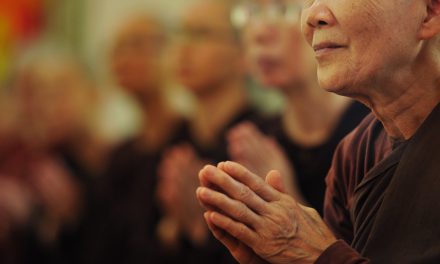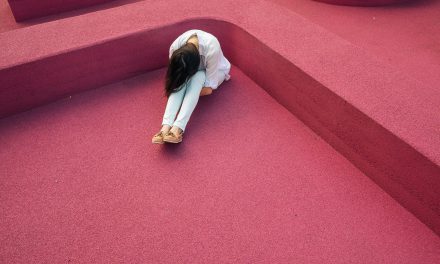How Yoga Helps You Sleep: The Research
This post is part of an ongoing public discussion relating to the scientific research of yoga and sleep. It follows a two-part online webinar, Scientific Research on Sleep and Yoga, which can be found on our events archive here. Comments are welcome in the comment field provided below this post. All comments are moderated for content and may or may not be published.
Sleep is a biological need and many in society don’t get enough of it, which could lead to disease.
Sleep is a complex process, and yoga appears to have a way of smoothing out some of our difficulties with it. Yoga Alliance’s Director of Yoga Research and Assistant Professor of Medicine at Harvard Medical School Dr. Sat Bir Singh Khalsa presented “The Scientific Research on Yoga and Sleep” Parts 1 and 2 this year calling sleep “both a biological need and a two-sided coin,” with wakefulness on one side and sleep on the other. He also said our society faces an “epidemic of self-imposed sleep restriction” because so many regularly deny themselves a good night’s sleep.
In Part 1, Dr. Khalsa defined sleep and addressed its rhythms and complexities. He used this groundwork in Part 2 to discuss insomnia, a sleep disorder from which nearly ¼ of the population suffers. In both talks, he provided evidence showing what so many with a regular yoga practice experience: Yoga helps you sleep better.
Defining sleep: what it is, how it works, and what happens when you’re in deficit
Sleep is an active and intricate process, important not just with regard to its quality, depth, and duration, but also in its relationship to what happens in our bodies the other 16-17 hours we are awake. Though the amount of sleep we need according to science is measured on a bell curve (which is used in all of science, Dr. Khalsa said), the average amount of sleep you need per night is a minimum of seven hours. Children from young childhood to teenage years need more sleep, upwards of 10 hours and sometimes even more.
The sleep cycle is timed by the alignment of a biological clock in our brain, which is based on an approximate-24-hour cycle. This is called the circadian rhythm, and it is sensitive to light exposure. The quality of our sleep within this cycle is important and influenced by many factors: How long we’ve been awake; whether or not we have accumulated “sleep debt;” internal and external stressors (such as disease, menopause, or poverty); and—particularly important in the online, homebound COVID world—the timing of our exposure to blue light exposure.
Dr. Khalsa spoke to the fact that self-imposed sleep restriction is likely a contributing factor to non-communicable diseases (NCDs) in the developed and developing world. He shared a study charting Americans’ sleep habits since 1985, which have decreased nightly so much that now nearly 30% of the population averages sleeping the dangerously low amount of less than 6.5 hours a night. NCDs include heart disease, high blood pressure, obesity, and diabetes, and chronic lack of sleep contributes to the development of these diseases.
“Sleep deprivation also increases the odds of your contracting an infectious disease like a coronavirus,” Dr. Khalsa said, pointing to a study in which military recruits over a six month period who slept less than six hours a night showed a significantly increased rate of developing upper respiratory tract infections.
On insomnia
We’re now learning from science that sleep habits can be changed through yoga and mindfulness practices, primarily via studies on those struggling with insomnia. Insomnia is defined as 1) difficulty falling asleep, 2) waking frequently at night, and/or 3) poor quality sleep.
Science is yet unable to understand the underlying difference between these three characteristics, and normally those with insomnia usually have a combination of all three. Insomnia is clinically considered to be chronic after it occurs for longer than one month at three or more times a week and causes “waking impairment.” Many people with Major Depressive Disorder (MDD) suffer from insomnia.
“Sleeping less than seven hours per night on a regular basis is associated with adverse health outcomes, including weight gain and obesity, diabetes, hypertension, heart disease and stroke, depression, and increased risk of death…also associated with impaired immune function, increased pain, impaired performance, increased errors; and greater risk of accidents.”
—Joint Consensus Statement from The American Academy of Sleep Medicine and Sleep Research Society
Getting a good night’s sleep is important for every way that body functions; chronic insomnia, therefore, is associated with imbalances in nearly all the body’s systems. One of these is a “hyperarousal state” in which the sympathetic, or fight-or-flight system, is constantly “on.” Of the non-pharmacological, “behavior treatments” used to mitigate insomnia, yoga and its practices fall into the “relaxation therapy” category in this chart.
Three citation highlights
In a systematic review, published in Sleep Medicine Reviews and designed to study evidence related to the efficacy of meditative movement—including yoga—on sleep quality, researchers considered randomized control trials (RCTs), the “gold standard of research,” using both English and Chinese databases. While noting “significant methodological limitations” in some studies analyzed, the authors concluded that sleep quality improvement occurred “in the majority of studies and was often accompanied by improvements in quality of life, physical performance, and depression.”
A systematic review and meta analysis titled “The effect of yoga on sleep quality and insomnia in women with sleep problems: a systematic review and meta-analysis,” found in 19 studies with more than 1,800 participants that yoga has benefits for managing sleep problems in women. While the study did not determine if those with breast cancer or in peri/postmenopause experienced as much benefit as those without cancer or experiencing menopause, the study did find that “the longer total length of class time, the more beneficial these practices were.”
A study published in The American Journal of Medicine, titled “Perceived benefits in a behavioral-medicine insomnia program: A clinical report,” suggests that “patients spontaneously seeking treatment for insomnia, including sleep medication users and those with psychological comorbidity, derive significant benefit from a group multifactor behavioral intervention.” The intervention included the contemplative practices of yoga, i.e., meditative exercises, combined with Mind Body Stress Regulation (MBSR) practices, and found that “all patients reported improved sleep at posttreatment.”
Research Citations
- Trends in Self-Reported Sleep Duration among US Adults from 1985 to 2012, Ford ES, Cunningham TJ, Croft JB, Sleep 38:829-32,2015
- Interactions between sleep, circadian function, and glucose metabolism: implications for risk and severity of diabetes, Reutrakul S, Van Cauter E, Annals of the New York Academy of Science, 1311:151-73, 2014
- Sleep Disorders and Sleep Deprivation: An Unmet Public Health Problem, Institute of Medicine, Colten HR, Altevogt BM,editors. Washington (DC): National Academies Press (US), 2006
- The cumulative cost of additional wakefulness: dose-response effects on neurobehavioral functions and sleep physiology from chronic sleep restriction and total sleep deprivation, Van Dongen HP, Maislin G, Mullington JM, Dinges DF. Sleep 26:117-26, 2003
- Why sleep is important for health: a psychoneuroimmunology perspective, Irwin MR, Annual Review of Psychology 66:143-72, 2015
- Effect of sleep deprivation on response to immunization, Spiegel K, Sheridan JF, Van Cauter E. Journal of the American Medical Association 288:1471-2, 2002.
- Increased Risk of Upper Respiratory Infection in Military Recruits Who Report Sleeping Less Than 6 h per night, Wentz LM, Ward MD, Potter C, Oliver SJ, Jackson S, Izard RM, Greeves JP, Walsh NP. Military Medicine, 183:e699-e704, 2018
- Subjective sleep quality and hormonal modulation in long-term yoga practitioners, Vera FM, Manzaneque JM, Maldonado EF, Carranque GA, Rodriguez FM, Blanca MJ, Morell M, Biological Psychology 81:164-8, 2009
- Frequency of yoga practice predicts health: results of a national survey of yoga practitioners, Ross A, Friedmann E, Bevans M, Thomas S, Evidence Based Complementary and Alternative Medicine, 983258, 2012
- National survey of yoga practitioners: mental and physical health benefits, Ross A, Friedmann E, Bevans M, Thomas S, Complementary Therapies Medicine, 21:313-23, 2013
- Impact of long term Yoga practice on sleep quality and quality of life in the elderly, Bankar MA, Chaudhari SK, Chaudhari KD, Journal of Ayurveda and Integrative Medicine, 4:28-32,2013
- Influence of Yoga & Ayurveda on self-rated sleep in a geriatric population, Manjunath NK, Telles S, Indian Journal of Medical Research 121:683-690, 2005
- Effects of yoga intervention on sleep and quality-of-life in elderly: A randomized controlled trial, Hariprasad VR, Sivakumar PT, Koparde V, Varambally S, Thirthalli J, Varghese M, Basavaraddi IV, Gangadhar BN, Indian Journal of Psychiatry, 55:S364-8, 2013
- A regular yoga intervention for staff nurse sleep quality and work stress: a randomised controlled trial, Fang R, Li X, Journal of Clinical Nursing, 24:3374-9, 2015
- A randomized controlled pilot study of the effects of 6-week high intensity hatha yoga protocol on health-related outcomes among students,Papp ME, Nygren-Bonnier M, Gullstrand L, Wändell PE, Lindfors P, Journal of Bodywork and Movement Therapy, 23:766-772, 2019
- Qualitative evaluation of a high school yoga program: Feasibility and perceived benefits, Conboy LA, Noggle JJ, Frey JL, Kudesia RS, Khalsa SBS, Explore: The Journal of Science & Healing, 9:171-180, 2013
- A Qualitative Examination of Yoga for Middle School Adolescents, Butzer B, LoRusso AM, Windsor R, Riley F, Frame K, Khalsa SBS, Conboy L., Advances in School Mental Health Promotion, 10(3):195-219, 2017
- Insomnia and the performance of US workers: results from the America insomnia survey,Kessler RC, Berglund PA, Coulouvrat C, Hajak G, Roth T, Shahly V, Shillington AC, Stephenson JJ, Walsh JK, Sleep, 34:1161-71, 2011
- Mind-body interventions for the treatment of insomnia: a review, Elisa Harumi Kozasa, Helena Hachul,Carlos Monson, Luciano Pinto Jr., Marcelo Csermak Garcia, Luiz Eugênio de Araújo Moraes Mello,Sérgio Tufik, 2010
- Yoga as the “Next Wave” of Therapeutic Modalities For Treatment of Insomnia, Sarah L. Kennedy, 2014
- The effect of meditative movement on sleep quality: A systematic review, FangWang, Othelia Eun-Kyoung Lee, Fan Feng, Michael V. Vitiello, Weidong Wang, HerbertBenson, Gregory L. Fricchione, John W. Denninger, 2016
- Integrative Medicine for Insomnia, Zhou ES, Gardiner P., Bertisch SM, Medical Clinics of North America, 101:865-879, 2017
- The effect of yoga on sleep quality and insomnia in women with sleep problems: a systematic review and meta-analysis, Wang WL, Chen KH, Pan YC, Yang SN, Chan YY., BMC Psychiatry, May 1;20:195, 2017
- Mindfulness-based stress reduction versus pharmacotherapy for chronic primary insomnia: a randomized controlled clinical trial, Gross CR, Kreitzer MJ, Reilly-Spong M, Wall M, Winbush NY, Patterson R, Mahowald M, Cramer-Bornemann M. Explore (NY), 7:76-87, 2011
- Perceived benefits in a behavioral medicine insomnia program: a clinical report, Jacobs GD, Benson H, Friedman R, American Journal of Medicine 100:212-216, 1996
- Yoga for improving sleep quality and quality of life for older adults, Halpern J, Cohen M, Kennedy G, Reece J, Cahan C, Baharav A, Alternative Therapies in Health and Medicine, 20:37-46, 2014
- Yoga decreases insomnia in postmenopausal women: a randomized clinical trial, Afonso RF, Hachul H, Kozasa EH, Oliveira Dde S, Goto V, Rodrigues D, Tufik S, Leite JR, Menopause 19:186-93, 2012

About the Author
Kim Weeks
Certified Iyengar Yoga Teacher and wellness expert, and founder of a wellness consulting and education company called Weeks Well, whose mission is to foster transformation in work and life.
Videos Associated With This Article
Yoga and Sleep
Hear what science says about using yoga to get better sleep, and what research has shown about implementing yoga as a treatment for insomnia.
CE Workshop | Scientific Research on Yoga and Sleep
This workshop underscores exactly why sleep is so important. Hear what science says about using yoga to get better sleep, and what research has shown about implementing yoga as a treatment for insomnia.
We welcome your thoughts.
We invite you to share your questions or insights in the comment field below. To ensure quality of conversations on our blog, all submitted comments are held in queue for moderation and review. We’ll do our best to publish your comments as quickly as possible.
Comment Guidelines.
![]() Keep comments concise and on-topic.
Keep comments concise and on-topic.![]() Be courteous.
Be courteous.![]() Review before posting.
Review before posting.![]() Provide references or links to documentation.
Provide references or links to documentation.![]() Avoid serial comments.
Avoid serial comments.







